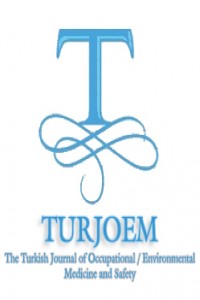Abstract
According to the World Health Organization (WHO), in 2012 alone, 12.6
million people have died due to exposure of unhealthy environmental factors,
which make up nearly 1 in 4 of total global deaths. Non-communicable diseases
(NCDs), such as stroke, heart disease, cancers and chronic respiratory disease
are mostly associated with air pollution, and amount to as much as 8.2 million
of these deaths. Environmental risk factors, such as air, water and soil
pollution, chemical exposures, climate change, and ultraviolet radiation (UV),
not only causes NCDs, but also more than 100 diseases and injures. Environmental
risks mostly affect children under 5 and adults aged 50 to 75 years. While cardiovascular
diseases make up the vast majority of environmental-related deaths, cancer
deaths are highly related to environmental factors (1.7 million annually).
Among the cancer types that are largely affected by environmental factors, such
as lung, colon, skin, and breast cancers, lung cancer is the leading cause of
cancer death in the US and worldwide. Tobacco smoking causes 87% of all lung
cancers. Parabens and aluminium in deodorants and anti-perspirants are linked
to male and female breast cancer. Stomach cancer is associated with
Helicobacter pyloris infection, which transmission is facilitated by poor
sanitation and crowding. Some of the leukemia disease burden is linked to occupational
exposures to chemicals, such as benzene and ethylene oxide. The most deadly
type of skin cancer, melanoma, is associated with excessive UV exposure. These deaths
may be reduced dramatically if people are more educated about and aware of the risk
factors. At Cancer Education and Research Institute (CERI), we educate people
worldwide about cancer in a ‘simplified’ way, in multiple languages, and in
many forms, helping them understand the disease and its risk factors that are
preventable.
References
- Ayguen SAHİN Cancer Education and Research Insitute (CERI), Boston, MA, USA
Abstract
References
- Ayguen SAHİN Cancer Education and Research Insitute (CERI), Boston, MA, USA
Details
| Journal Section | Articles |
|---|---|
| Authors | |
| Publication Date | February 16, 2017 |
| Published in Issue | Year 2017 Volume: Volume 2 Issue: İssue 1 (1) - 2.İnternational Congress Of Forensic Toxicology |


